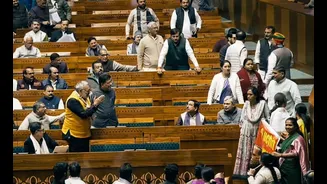Mumbai's Prestigious Meet
The Screenwriters Association of India was the host for the International Affiliation of Writers Guilds' annual general body meeting, which took place
over three days in Mumbai. This convergence of prominent writers and industry experts marked a significant event in the entertainment sector. The selection of Mumbai as the venue emphasized the city's burgeoning importance as a center for film production and a hub for creative talent. The meeting offered a crucial platform for exchanging ideas and debating critical challenges facing screenwriters in the global entertainment arena. The choice of location underscored Mumbai's role in fostering international collaborations and conversations about the future of film.
The Agenda's Core Issues
The meeting's agenda focused on a range of pressing concerns within the global screenwriting community. A key focus was the assessment of screenwriters' economic rights, particularly regarding contracts and royalties. Discussions explored contract terms and payment structures, with many screenwriters lamenting unfavorable agreements. Participants addressed the evolving role of technology and its impact on creative and economic aspects of filmmaking. The presence of artificial intelligence in the film industry, and its effect on screenwriting, was also a significant topic of discussion. The discussions sought to analyze and formulate strategies to address contemporary challenges while safeguarding the screenwriters' creative and economic interests.
Unfair Contracts Decried
One of the predominant issues highlighted during the meeting was the widespread dissatisfaction with existing contracts. Screenwriters shared their experiences of dealing with agreements that offered inadequate compensation and failed to provide fair recognition for their work. Several speakers voiced strong criticism, calling attention to contract stipulations that limit royalties or fail to adequately protect intellectual property rights. The consensus was that these unfavorable contract terms hinder the writers' ability to benefit from their creations fully. The discussions also revealed a pressing need for reform, along with standardized contract templates and greater transparency. The participants' collective effort aimed to establish industry-wide standards that are beneficial to writers.
Royalty Payment Challenges
Another significant concern at the meeting was the matter of royalty payments. Many screenwriters reported facing difficulties in obtaining their rightful dues, and they expressed frustration with the complex and often opaque systems that govern royalty distribution. Delayed payments, errors in calculations, and a general lack of transparency were among the problems raised. Participants acknowledged the difficulties in keeping track of their royalties, especially in the age of streaming. The meeting's discussions highlighted the importance of improving the royalty payment mechanisms to ensure screenwriters are fairly compensated for their work. The goal was to find methods for more efficiently tracking and distributing royalties, which in turn would help create a more equitable and sustainable ecosystem for writers.
AI's Industry Impact
The rapidly advancing role of artificial intelligence in screenwriting also sparked lively discussion. Screenwriters assessed the potential effects of AI tools on their work and how these technologies will impact the industry. There was a mix of opinions. Some expressed concern about the potential for AI to displace human writers and erode creative control. Others saw AI as a potential tool to support their creative processes. The discussions aimed to navigate the changing landscape and find ways to incorporate these emerging technologies ethically and responsibly. The guild acknowledged the importance of setting industry standards and developing guidelines to protect writers' rights and promote fair use of AI in the creative process.
Global Industry Concerns
Throughout the meeting, participants underscored the shared challenges screenwriters face around the globe. They spoke about contractual exploitation, payment disputes, and technological advancements that are reshaping the industry. International collaboration was highlighted as crucial. The shared experiences and discussions created an opportunity for writers to support each other across geographic boundaries. Participants emphasized the need for the industry to adapt to technological changes. The meeting became an open forum for establishing industry standards that will help improve the conditions for screenwriters globally, offering a united front.













